|
9/1/2022 Reading the Book of Creation: Reflections on the World Day of Prayer for the Care of CreationRead NowOn the Feast of the Transfiguration, August 6, 2015, Pope Francis established the “World Day of Prayer for the Care of Creation” to be celebrated annually on September 1. In doing so, the Holy Father shared his concern for creation with Ecumenical Patriarch Bartholomew, who initiated a similar day of prayer in the Orthodox Church in 1989. For Pope Francis, the World Day of Prayer for Creation reminds Catholics of our “vocation to be protectors of God’s handiwork,” a calling and responsibility which is “essential to a life of virtue; it is not an optional or a secondary aspect of our Christian experience” (Laudato Si’ 217). As we celebrate this second annual World Day of Prayer for Creation, it is fitting to reflect on our vocation as Catholics to care for creation. Though we have a long-standing tradition of caring for creation that goes back to the early Church Fathers and has been promoted more recently by Pope Emeritus Benedict and Pope St. John Paul II, Pope Francis has brought this aspect of our faith into the limelight. I believe there are two main reasons for this: conversion and evangelization. The ecological crisis, the Pope tells us, is a summons to profound spiritual conversion that leads to developing a deeper relationship with the world around us and recognizing that “the life of the spirit is not dissociated from the body or from nature or from worldly realities, but lived in and with them in communion with all that surround us” (LS, 216). We are called to live in the world, not apart from it. We get to the spiritual through the physical. Pope St. John Paul II also taught us this in his Theology of the Body. This conversion also involves recognizing our sins against creation. In Laudato Si’, Pope Francis reminds us that “human life is grounded in three fundamental and closely intertwined relationships: with God, with our neighbor and with the earth itself” (LS, 66). Our faith exhorts us to live well, not only with God and with our neighbor, but also with the earth. One practice for this World Day of Prayer for Creation could be to examine our consciences and consider how we have treated the created matter with which we have been entrusted. Have we been selfish and unconcerned for the needs of others, consumeristic, gluttonous, unaware of the gift that creation is to us? Perhaps we have wasted food, water, or energy unnecessarily. Perhaps we watched hours of Netflix when we could have been outside walking with a friend, serving the poor, or contemplating nature. Do we feel compelled to have the latest iPhone or the largest car? Our Holy Father points out that we need to “replace consumption with sacrifice, greed with generosity, wastefulness with a spirit of sharing,” and he quotes Patriarch Bartholomew in exhorting us to cultivate “an asceticism which ‘entails learning to give, and not simply to give up. It is a way of loving, of moving gradually away from what I want to what God’s world needs.’” (LS, 9). In our process of conversion we can follow the example of Pope Francis’ namesake, St. Francis of Assisi, in doing the inner work needed to embrace creation as “Brother” and “Sister.” I believe that Pope Francis, like the two popes preceding him, also sees our Catholic concern for ecology as a path into the New Evangelization. The beauty of creation speaks to the heart and can awaken human persons to a deep interior longing for the divine source, for the Creator God. Great spiritual writers like St. Bonaventure called the created world the “book of creation,” because the created world is constantly speaking to us of God. As humans we learn to understand the language of creation by spending time outside, by developing a heart for creatures, by learning to see the vestiges of God’s love in the beauty, diversity, and extravagance of the natural world. In doing so, we come closer to God and to understanding his plan for us and for the world. It’s a two-way street: We need to learn the language of creation in order to better care for the created world. At the same time, in that conversation, we are drawn into a deeper relationship with God, the Creator. As we experience this ourselves, we are driven to share the experience with others in a new kind of evangelization. In our fast-paced world, being attentive to creation reminds us that “we are not God” (LS, 67), for if we pause and look at the beauty surrounding us, we experience a beauty that transcends anything we humans can create. At the same time, we become aware of our unique creation as humans and the moral structure inscribed into our very nature (LS, 155). Being outdoors is also a healing tonic to assuage the effects of technology and the pressures of the virtual world in which we spend so much of our time. It is an antidote for the “technologization” of society and keeps us in touch with true reality. Let us then, as we celebrate this World Day of Prayer for Creation, embrace with joy the opportunities for conversion and evangelization that lie ahead! Click here for more resources on ecology, the World Day of Prayer for Creation, and Laudato Si. **This post was originally published on 9/1/2016**
0 Comments
I remember feeling refreshed when Laudato Si’ was published just over two years ago. The opening line the Pope selected, “Praise be to you, my Lord,” echoes St. Francis of Assisi’s framing of the earth as a “sister with whom we share our life and a beautiful mother who opens her arms to embrace us.” For me, an encyclical letter being released carried the same weight as seeing a long-hyped movie on opening night; as the second-highest ranking Church document, encyclicals like Laudato Si’ carry high papal priority and are written in the Holy Father’s own hand so that their views can authoritatively end a theological debate on a particular question. I very much enjoyed reading and discussing its rich contents among my peers. In the light of Christian spirituality, the document links environmental stewardship to both authentic human ecology and also the need to care for and protect those who might suffer from rash and greedy ecological harvesting. These discussions about the encyclical continued during the school year with university-sponsored symposiums, panels, service activities, and curriculum integrations designed to continue to unpack the impressive document from what many might erroneously dismiss as simply a work about climate change and the need to live sustainably.
A few months after he released Laudato Si’, Pope Francis announced in a letter to members of the curia his intention to establish a “World Day of Prayer for the Care of Creation” on the first day of September each year. The purpose of such a day, in my opinion, is to globally unite efforts by the Church and Her collaborators regarding the care of creation—efforts that continue throughout the year and which the Church re-consecrates and re-entrusts to God as a work beyond human hands. The same goes for similar days established by previous popes and the bishops conferences such as the International Day of Prayer and Awareness Against Human Trafficking, the Fortnight for Freedom, the World Day for Consecrated Life, the World Day of Prayer for Vocations, World Youth Day, World Marriage Day, and others. Through the establishment of these days, the Church seeks to galvanize us with a call to action to refresh our focus and attention to matters which affect us all physically, culturally, and spiritually. The annual World Day of Prayer for the Care of Creation is geared to unite our prayers with acts of witness: [It] will offer individual believers and communities a fitting opportunity to reaffirm their personal vocation to be stewards of creation, to thank God for the wonderful handiwork which he has entrusted to our care, and to implore his help for the protection of creation as well as his pardon for the sins committed against the world in which we live. Anyone can recycle, turn off unnecessary lights, or use public transportation, but what Pope Francis invites us to do (while reiterating the “nobility… [of these] little actions”) is something much more substantial and fulfilling. Laudato Si’ is his personal call for each of us to live out an “integral ecology,” which does not neglect our relationships with God, other human beings (especially those often neglected by society), and the natural creation of Earth. Pope Francis highlights the fact that all are integrated. To allow one relationship to suffer is to allow the others to suffer as well. The World Day of Prayer for the Care of Creation is not intended as a rude awakening to the artificial harm being inflicted upon the planet. The natural creation that surrounds us is inherently “good” because God Himself wonderfully designed and detailed everything… and we human beings are the crowning achievement (see Genesis 1:26). When we behold His wonders, we should be moved to praise Him for everything He has set before us as part of our earthly home (see Psalms 104 and 148)! As we celebrate the World Day of Prayer for the Care of Creation, I invite you to read or reread Laudato Si’. In doing so, may we be moved to want to preserve and protect our world in recognition of its inherent dignity so future generations may continue to marvel and wonder at the works of God. “May the glory of the LORD endure forever; may the LORD be glad in his works!” -Psalm 104 Question for Reflection: How can you live out what Pope Francis calls an "integral ecology"? For more resources on Laudato Si', please click here. 9/1/2016 Reading the Book of Creation: Reflections on the World Day of Prayer for the Care of CreationRead NowOn the Feast of the Transfiguration, August 6, 2015, Pope Francis established the “World Day of Prayer for the Care of Creation” to be celebrated annually on September 1. In doing so, the Holy Father shared his concern for creation with Ecumenical Patriarch Bartholomew, who initiated a similar day of prayer in the Orthodox Church in 1989. For Pope Francis, the World Day of Prayer for Creation reminds Catholics of our “vocation to be protectors of God’s handiwork,” a calling and responsibility which is “essential to a life of virtue; it is not an optional or a secondary aspect of our Christian experience” (Laudato Si’ 217). As we celebrate this second annual World Day of Prayer for Creation, it is fitting to reflect on our vocation as Catholics to care for creation. Though we have a long-standing tradition of caring for creation that goes back to the early Church Fathers and has been promoted more recently by Pope Emeritus Benedict and Pope St. John Paul II, Pope Francis has brought this aspect of our faith into the limelight. I believe there are two main reasons for this: conversion and evangelization. The ecological crisis, the Pope tells us, is a summons to profound spiritual conversion that leads to developing a deeper relationship with the world around us and recognizing that “the life of the spirit is not dissociated from the body or from nature or from worldly realities, but lived in and with them in communion with all that surround us” (LS, 216). We are called to live in the world, not apart from it. We get to the spiritual through the physical. Pope St. John Paul II also taught us this in his Theology of the Body. This conversion also involves recognizing our sins against creation. In Laudato Si’, Pope Francis reminds us that “human life is grounded in three fundamental and closely intertwined relationships: with God, with our neighbor and with the earth itself” (LS, 66). Our faith exhorts us to live well, not only with God and with our neighbor, but also with the earth. One practice for this World Day of Prayer for Creation could be to examine our consciences and consider how we have treated the created matter with which we have been entrusted. Have we been selfish and unconcerned for the needs of others, consumeristic, gluttonous, unaware of the gift that creation is to us? Perhaps we have wasted food, water, or energy unnecessarily. Perhaps we watched hours of Netflix when we could have been outside walking with a friend, serving the poor, or contemplating nature. Do we feel compelled to have the latest iPhone or the largest car? Our Holy Father points out that we need to “replace consumption with sacrifice, greed with generosity, wastefulness with a spirit of sharing,” and he quotes Patriarch Bartholomew in exhorting us to cultivate “an asceticism which ‘entails learning to give, and not simply to give up. It is a way of loving, of moving gradually away from what I want to what God’s world needs.’” (LS, 9). In our process of conversion we can follow the example of Pope Francis’ namesake, St. Francis of Assisi, in doing the inner work needed to embrace creation as “Brother” and “Sister.” I believe that Pope Francis, like the two popes preceding him, also sees our Catholic concern for ecology as a path into the New Evangelization. The beauty of creation speaks to the heart and can awaken human persons to a deep interior longing for the divine source, for the Creator God. Great spiritual writers like St. Bonaventure called the created world the “book of creation,” because the created world is constantly speaking to us of God. As humans we learn to understand the language of creation by spending time outside, by developing a heart for creatures, by learning to see the vestiges of God’s love in the beauty, diversity, and extravagance of the natural world. In doing so, we come closer to God and to understanding his plan for us and for the world. It’s a two-way street: We need to learn the language of creation in order to better care for the created world. At the same time, in that conversation, we are drawn into a deeper relationship with God, the Creator. As we experience this ourselves, we are driven to share the experience with others in a new kind of evangelization. In our fast-paced world, being attentive to creation reminds us that “we are not God” (LS, 67), for if we pause and look at the beauty surrounding us, we experience a beauty that transcends anything we humans can create. At the same time, we become aware of our unique creation as humans and the moral structure inscribed into our very nature (LS, 155). Being outdoors is also a healing tonic to assuage the effects of technology and the pressures of the virtual world in which we spend so much of our time. It is an antidote for the “technologization” of society and keeps us in touch with true reality. Let us then, as we celebrate this World Day of Prayer for Creation, embrace with joy the opportunities for conversion and evangelization that lie ahead! Click here for more resources on ecology, the World Day of Prayer for Creation, and Laudato Si.
“The Heavens are telling the Glory of God. The Firmament displays the wonders of his works.” -Psalm 19:1.
Joseph Haydn’s setting of Psalm 19:1 to music in No. 13 of his oratorio Die Schöpfung (The Creation), proclaims that Creation reveals the Creator. I have found this to be true throughout my life, and I often find that hiking and enjoying the world which God has created for us is the best way for me to encounter God. I have twice had the opportunity to go on a 10 day backpacking trek in the Sangre De Cristo Mountains of northern New Mexico; where the Boy Scouts own 140,000 acres of wilderness called Philmont. Before you are allowed in the “backcountry” you must learn how to leave minimal impact in order to preserve the wilderness for others, principles called Leave No Trace. The ideal of these principles are to “take nothing but pictures and leave nothing but footprints.” Because others have been good stewards of the beautiful country God created, I have had the opportunity to enjoy the views and encounter Christ myself through the beauty of his creation. For me, this encounter came from summiting some of the highest peaks in New Mexico and beholding the wonders of his works. Each hiker at Philmont performs a conservation service project during his trek in order to preserve the ranch for future generations. This is the spirit that Pope Francis evokes in his encyclical Laudato Si’ and in today’s first annual World Day of Prayer for the Care of Creation on September 1st. We are stewards of the earth and must do our part to ensure that the world is preserved for future generations of God’s children. This day of prayer is exciting on many fronts, both from our stewardship of creation and the unity of our Christian family. Today is a day to pray for a culture that cares for every living thing from the unborn child, to the elderly, to the trees and rivers, birds and bees. As St. Vincent Pallotti foresaw, living in a shared world requires perseverance, sharing of resources and a spirit of service. We will all need these virtues to develop an authentic human ecology and build up Christ’s Kingdom on Earth. Nick Wagman is Information Technology Coordinator for the Catholic Apostolate Center. |
Details
Archives
July 2024
Categories
All
|
About |
Media |
© COPYRIGHT 2024 | ALL RIGHTS RESERVED

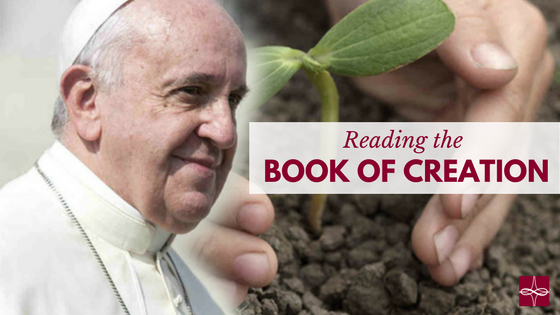
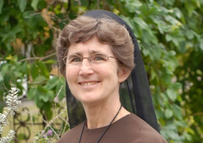
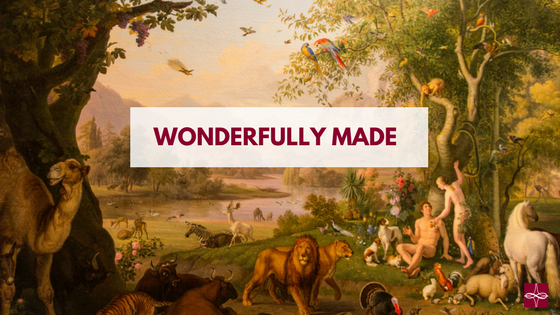

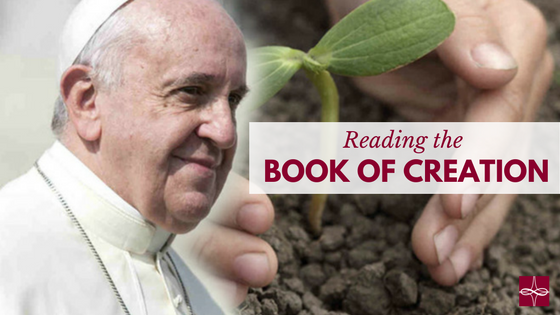
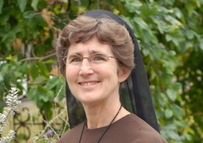
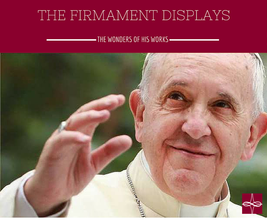
 RSS Feed
RSS Feed